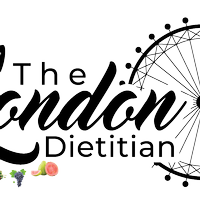Last month, I wrote about cholesterol and how high levels can increase your risk of developing cardiovascular disease (CVD). This week we will delve into triglycerides which have also been linked to increase CVD risk, in addition to increasing the risk of non-alcoholic fatty liver disease, acute pancreatitis and certain cancers.
But first things first, what are triglycerides and how do they differ from cholesterol? In essence, both triglycerides and cholesterol are types of fat which have essential roles in the body. Cholesterol helps to build cell walls and helps to make hormones and vitamin D. Triglycerides are simply the units in which fat is stored in the body. Whenever you eat, any calories that are not needed to be used as energy for the body right away are stored as triglycerides in our fat cells. Our body will call on these triglycerides during periods in which we need more energy. The liver is also involved in making triglycerides, especially when you overconsume food (in particular, carbohydrates).
When you go to your GP, triglycerides will be included as part of your lipid profile. Ideally, you would have a fasting blood test as eating beforehand will impact the results. Healthy adults should aim for a fasting triglyceride below 1.7mmol/L and if taking a non-fasting triglyceride, the aim is for it to be below 2.3mmmol/L.
Now that we’ve established what triglycerides are and their job in the body, let’s get to how we can reduce their levels if they are too high- my top 3 tips are as follows:
Tip #1-Limit Saturated fats and Trans fats
Switch from saturated fats found in red meats, fried food, butter and confectionary to healthier fats found in olive oil, plant foods and fish. Avoid products made with hydrogenated oils as these will contain the trans fats that we want to avoid as much as possible the diet. These types of fats are often found in a range of processed food products such as cakes, microwave popcorn, cookies, pies and shortening.
Tip #2 -Reduce alcohol
Alcohol is high in both simple sugars and calories, which can significantly increase triglyceride levels. If you have really high triglyceride levels, it may be prudent to avoid any type of alcohol. Alcohol also inhibits the action of an enzyme used to breakdown particles carrying lipids in the blood, thus increasing their levels.
Tip #3 - Watch your simple carbohydrate intake
When we overconsume carbs, particularly the simple versions (think refined, ultra-processed white starches, table sugar, confectionary, sugary drinks, sweets) our body converts them to triglycerides. Carbs are still an important part of a healthy, balanced diet so ensure that your plate is balanced (mixture of carbs, healthy fats and protein)and try to opt for wholegrain varieties when you can- these are nutrient-packed with more vitamins and minerals, in addition to fibre.
What about supplements?
I often get asked by my patients about supplement use to help lower their triglyceride levels, in addition to making the above dietary changes. The following are some of the most popular supplements:
Omega 3 oil: These can be effective but high doses (more than 3g per day) should be discussed with your medical team as it can interfere with blood thinner medication if you are on them.
Niacin: This is a nutrient from the vitamin B complex. High doses have been associated with liver inflammation and can also interfere with certain medications which can cause life-threatening issues- consult with your doctor before starting.
As a final note, it is important to be aware of new research regarding triglycerides and increased CVD risk that has come to light. Although I have mentioned above that triglycerides increase the risk of heart disease and have traditionally been considered as an independent risk factor for CVD (regardless of cholesterol levels), recent research has shown that after the studies have adjusted (this is a statistical term whereby researchers remove the effects of other factors that could increase CVD risk leaving only the relationship between the two studied factors standing- in this case, triglycerides and CVD risk) for non-HDL cholesterol, the association between CVD risk and triglycerides is significantly reduced. However, even if more research comes to light in coming years that high triglycerides aren’t as bad for the heart as we currently think they are, it’s still a good idea to reduce them as they can still increase the risk of other conditions, as discussed above.

